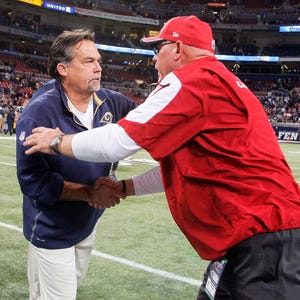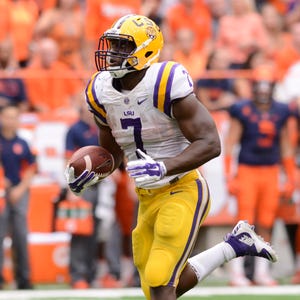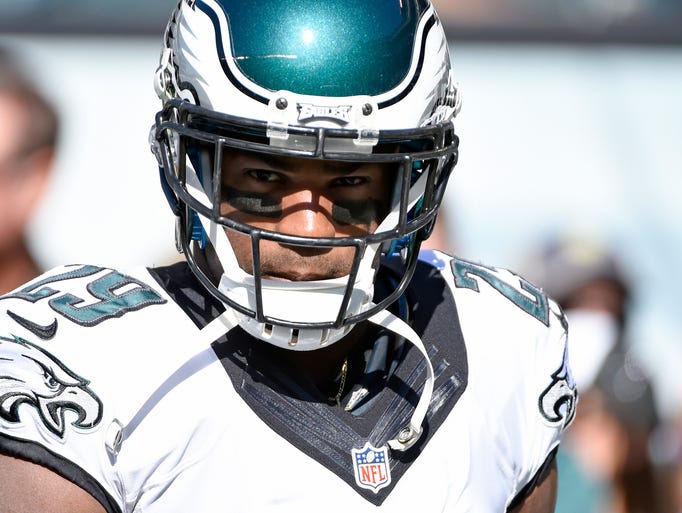Future clouded for daily fantasy sports betting – azcentral.com
Watching NFL games on Sundays at your favorite spot, be it from a bar stool, a friend’s house or your couch, isn’t what it used to be. Not when every other commercial is another pitch telling you why you should join a daily fantasy sports website and win gobs and gobs of cash.
Thanks a lot, DraftKings and FanDuel. You’ve saturated the advertising market bigger than any car-insurance company or pharmaceutical corporation hawking tablets for low testosterone levels ever could dream.
We’re all in a state of dysfunction now, trying to figure out where this massive media ad blitz came from and why we’re being subjected to such a fantasy football overload. But while we’re asking ourselves where all the beer and truck commercials have gone, maybe we should be asking a different question:
Is this DraftKings and FanDuel phenomenon even legal?
Think about it. How could gambling on players and how they perform in games possibly be legal when, clearly, online gambling on which team you think will win is illegal?
After all, this isn’t “social gambling” we’re talking about. This isn’t some friendly fantasy league like the one you’ve had for years with your buddies, bar mates or coworkers. These two websites, in particular, have boasted they will pay out anywhere from $1-2 billion in prize money and winnings this football season.
But that’s nothing compared with the estimated daily fantasy sports entry fees that sites like those will collect. In a recent research report released by Eilers Research, gaming analyst Adam Krejcik projects entry fees paid to growing empires like DraftKings and FanDuel might reach nearly $18 billion in 2020.
If lawmakers let them stay in business that long.
Several states, including California, New Jersey and Massachusetts, where DraftKings is based, are considering legislation that would place strict regulations and licensing on daily fantasy sports enterprises, which would affect the future of online fantasy gaming. There have even been calls for congressional hearings on the matter because lawmakers are concerned the lines have been blurred between sports and online wagering.
For now, the concept is deemed legal in most states under a loophole in the federal ban on online gambling because daily sports fantasy has been classified by law as a game of skill, not a game of chance.
Jason Robins, the CEO of DraftKings, compares daily fantasy sports to chess or playing the stock market. He also notes the majority of clients are men between the ages of 21-35 who strongly believe in the merits of analytics and deep data research.
“They do their homework,” Robins told an audience last week at the Global Gaming Expo in Las Vegas, via the Las Vegas Review-Journal. “It’s like the stock market. They enjoy looking at something and trying to figure out something that someone else doesn’t see.”
There are at least five states, however, where DraftKings and FanDuel do not operate because it is either illegal or the laws are more unfriendly: Arizona, Montana, Washington, Iowa and Louisiana.
Azcentral sports reached out to Dan Bergin, Arizona’s Director of the Department of Gaming, for clarification on the legality of such gaming industries. Bergin directed inquiries to Amanda Jacinto, the department’s public information officer.
“As a regulatory agency, we don’t have opinions, we just have rules,” Jacinto said, explaining such outfits as DraftKings and FanDuel are most certainly illegal in Arizona.
“Every Monday morning when I come to work I’ve got at least five or six calls or emails from people who basically have the same question: Why are we getting inundated with all these television commercials? I like to watch the games on Sunday, too, and it gets to the point where 80 percent of the advertising you see are towards fantasy sports.
“You can see at the bottom of these spots that Arizona is exempt. But still, people are curious. They don’t understand why they don’t get to participate.”
They almost got their chance a year ago. In February 2014, the Arizona Legislature introduced Senate Bill 1468 that would have allowed players in Arizona to partake in fantasy sports competitions offering a prize. However, that bill did not pass amid concerns the legislation would have implications on the Arizona Tribal-State Gaming Compacts, which were approved by Arizona voters in 2002.
That may not stop some Arizona residents from attempting to play and win money through daily fantasy sports. Just as there are loopholes in some laws, there are ways – albeit illegal ways – to tap into the money tree that is DraftKings and FanDuel.
Jacinto advises that wouldn’t be wise.
“We’ve done checks with them to make sure they are not doing payouts to Arizona residents because it is illegal,” she said. “Beyond that, if somebody goes out and tries to backdoor their way into these websites and they win and they get caught, my suspicion is they’re not going to get their payout.”
In addition to that, they also could face stiff fines and possible jail time.
No new fantasy sports legislation has been introduced, which means for the time being, you still can’t play in Arizona. However, we’ll still be subjected to the advertising crush from DraftKings and FanDuel, who seemingly are everywhere.
FanDuel, for instance, had its logo on the shorts of boxer Floyd Mayweather Jr. when he beat Manny Pacquiao in May. DraftKings had its logo on the side of American Pharoah’s blanket when the racehorse won the Triple Crown in June. According to Krejcik, the two companies have already invested more than $300 million in advertising this year alone.
Reach McManaman at bob.mcmanaman@arizonarepublic.com. Follow him on Twitter @azbobbymac and listen to him live every Monday at 5:30 p.m. on NBC Sports Radio 1060-AM with Roc and Manuch and every Wednesday night between 7-9 p.m. on Fox Sports 910-AM on The Freaks with Kenny and Crash.









